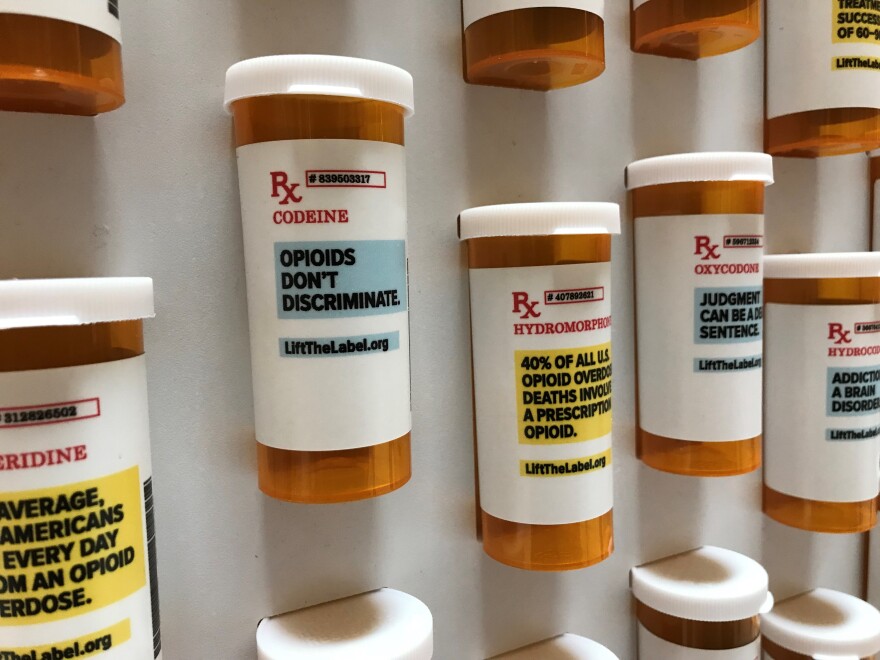Colorado is working hard to address behavioral and mental health and addiction. During his annual State of the State address earlier this month, Gov. Jared Polis said reducing costs in the health care system will help tackle these issues.
"Our state already spends $1.4 billion on mental and behavioral health," Polis said. "We need to make our system patient-centric and more efficient so we can get the right help to more people when they need it."
The help achieve this goal, Polis created a Behavioral Health Task Force last April to conduct a top-to-bottom review of the state's behavioral health system and author a strategic plan for reform by June.
KUNC's Stephanie Daniel spoke with task force subcommittee co-chair Robert Werthwein, director of Colorado's Office of Behavioral Health, to learn more about the review and strategic plan.
These interview highlights have been lightly edited for length and clarity.
Stephanie Daniel: How does mental health in Colorado compare to other states?
Robert Werthwein: It's no surprise that Colorado ranks at the bottom half of states when we talk about mental health outcomes, and in suicide, we rank towards the top. We want to change that, we want to invest in Coloradans in a way they can get the services they need.
What are you specifically going to look at?
We're looking at workforce, we're looking at access to care for Coloradans. We're looking at state structure so that it's not from a bureaucratic standpoint but so the consumer doesn't feel any bureaucracy getting their care. We really want it to be a patient-centric, a consumer-centric model. So, make it as easy for Coloradans to get care. That means the rest of us need to figure out a solution that doesn't put the burden on those that need services.
What are some of the barriers for Coloradans getting access to care or mental health support?
There's a range of things. What we hear a lot is people don't know where to go. I think if you don't have Medicaid and you don't have private insurance, people just don't know where to go. They're like, 'Where do I go to get my services?" We need to make that easier. There are like 64 different programs for mental health and behavioral health in Colorado but they're not all strategically interwoven together. I think if we can do that at the state level, we can make it sort of more seamless for the consumer, on the ground.
What would be a top priority that your office really wants to tackle this year?
For this year is getting the plan and the reform done by June, so the governor can sort of know where he wants to go going forward in his time as governor of Colorado. We don't want a plan that's a plan. That's really key, we've been saying it every meeting, we're not here to create a plan that's going to collect dust on a shelf. At the end of our plan we'll say who's taking what lead and who's doing what because we are going to do something.
Why create this task force now?
That's a good question. There's a lot of bills that come out of state legislators, there's a lot of effort at the federal level and we need to be strategic in pulling them all together. This piecemeal approach is exactly that, it's a piecemeal approach that doesn't feel really good to consumers. We've been hearing from the consumers and we're hearing from the consumers now. We hold meetings, set aside time where consumers can come and talk about and tell their story. We're taking notes and saying, "Okay, what are we hearing from consumers and then what do we need to do about it?" So, why not now?
Are there any areas in the state your office is really focusing on?
We're focusing on the whole state, it's not a "this region, that region." But being mindful and being cognizant that different areas of the state have different needs. How we deliver care in rural Colorado or in the mountain regions, frontier Colorado, it's going to look different than Denver Metro and that's been really clear from the consumers: don't give us a one-approach model to all of our needs. We're very different and different areas have very different needs.

The Office of Behavioral Health oversees the "Lift the Label" campaign, which aims to remove the stigma around opioid addiction. How is the campaign going?
It's been a really successful campaign. One of the reasons we know it's been a successful campaign is because we're hearing more and more this idea that people addicted to opioids is not just what people think of, of homeless populations or other populations, it's anybody. Most people get addicted to opioids through a prescription they have for pain. That's how they get addicted to opioids and that's any of us.
I think in that way, it's been great. It's great that communities have been open to sort of taking in more opioid treatment programs and there's been a lot of efforts and desire to go that route. The "Lift the Label" campaign is the anti-stigma campaign and this idea, if you lift the label you'll be surprised who you see, who is working through their addiction for opioids. There's a lot going on out there, so that's great.
This conversation is part of KUNCŌĆÖs Colorado Edition for Tuesday, Jan. 21. You can find the full episode here.
Editor's Note: This story has been updated to clarify Robert Werthwein's position on the task force.




